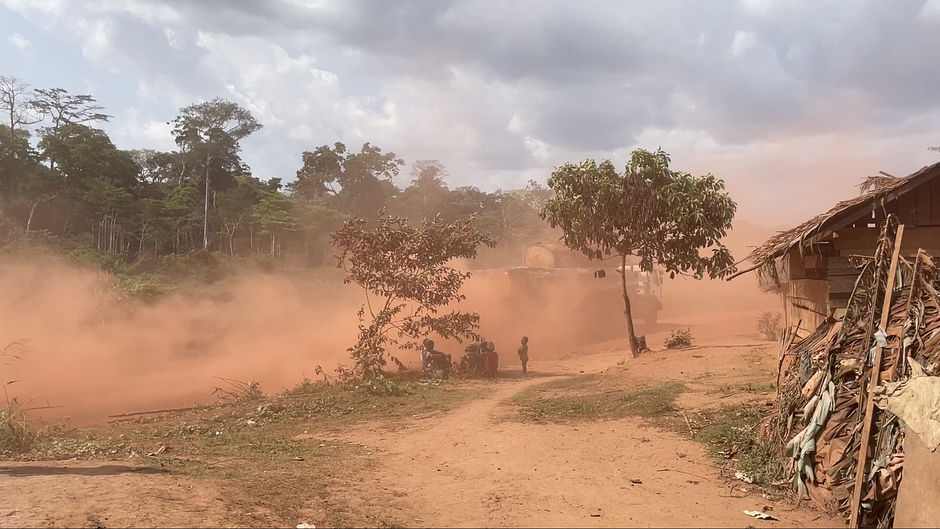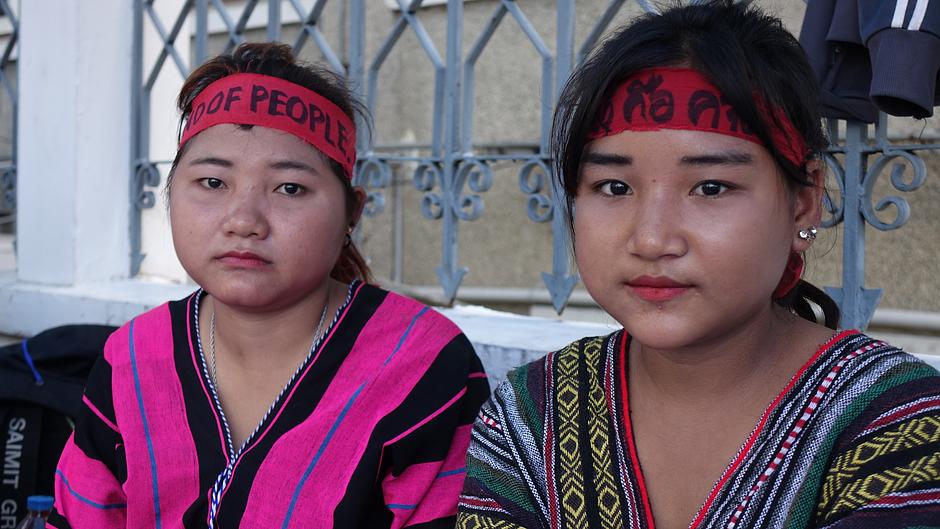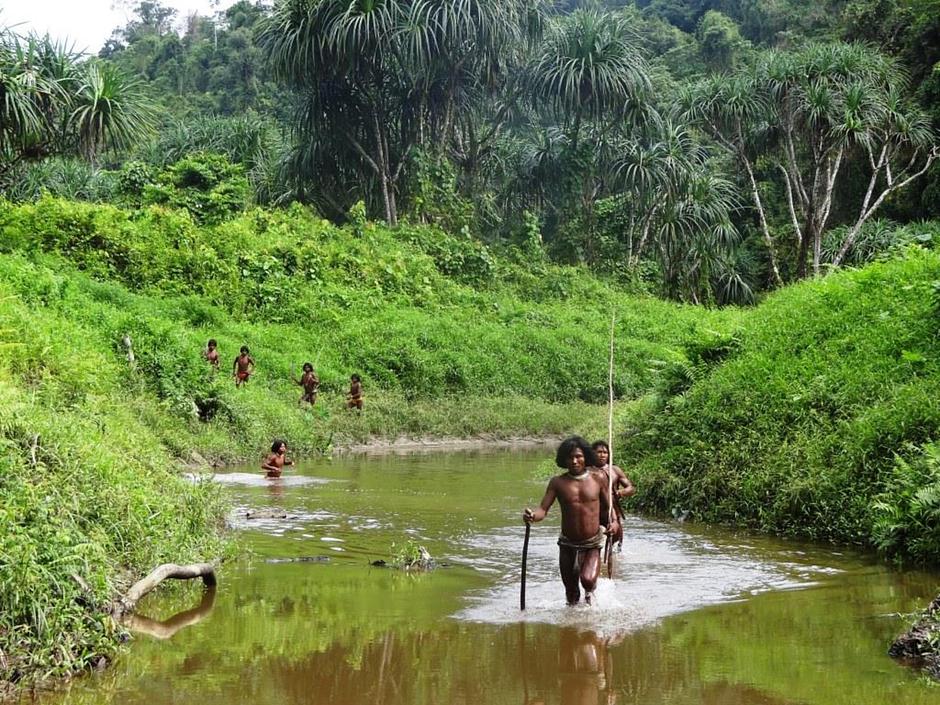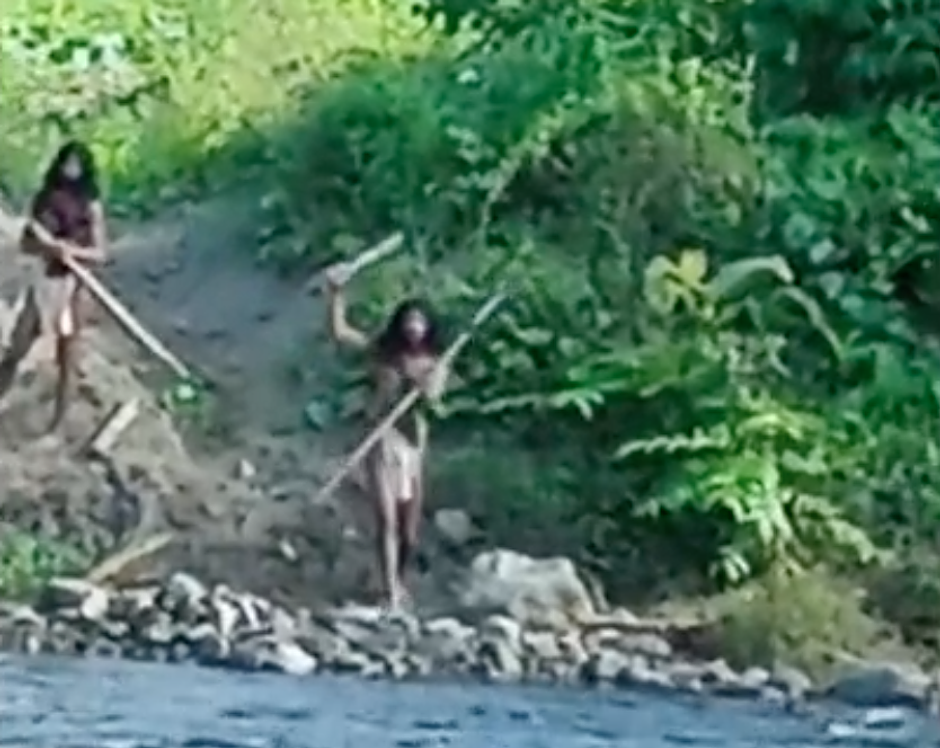THE BAKA PEOPLES DON’T WANT TO BE SACRIFICED FOR CONSERVATION
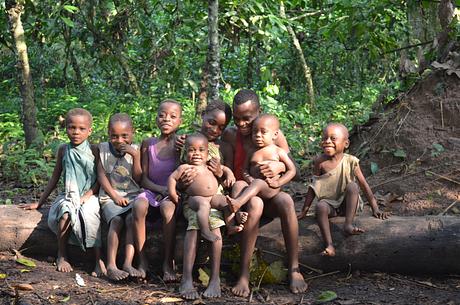
“IF YOU CLOSE OFF THE FOREST, IT’S THE END OF WORLD FOR THE BAKA”
The dense Messok Dja rainforest has been home to the Baka Peoples since time immemorial. But now the forest is being closed off to them to make way for a new national park. Although the park hasn’t been formally established, the Baka are being driven from their homes and deprived of their vital lifeline of forest resources—with devastating results.
For nearly a decade, the World Wide Fund for Nature (WWF) has been working with the Congolese government to set up the Messok Dja National Park with the help of funding bodies like the European Commission (EC), the US Fish and Wildlife Service (USFWS), the Global Environment Facility (GEF), and other agencies like and the United Nations Development Programme (UNDP).
During this time, WWF-funded park rangers have actively patrolled the area. The Baka, who are vehemently opposed to the national park, have denounced the rangers, whom they accuse of violence, discrimination and torture.
One Baka woman described how “The wildlife guards just want to kill us. Once, I had just gone to do some dam-fishing. I was coming back with some fish to grill in packages made of leaves, to eat with my husband and children. I’m coming back with the pot of fish, I put it down. Just like that, the ecoguards grab me: Bam, bam, bam. For no reason. I hadn’t provoked them, I didn’t owe them anything. They just beat me and I don’t even know what for.”
Another man reported, “We just suffer these terrible beatings here for nothing. If they see us, they just beat us with machetes. Bam, bam, bam [on your body].”
In 2011, park rangers operating in the area were involved in a string of events that led to the death of 10-year old Christine Mayi.
In the face of such persecution, many Baka have retreated from the forests to live in road-side camps. Already they are being forced to abandon their age-old tradition of “molongo” – going deep into the forest for extended periods to hunt and gather. This is now impossible as one Baka woman explained:
“How can I go into the forest?…I just go round in circles here. At this time of year I gather wild mangos, [but] now I just stay close to the road. I just gather the mangoes that are near here.. that’s their forest – they’ve taken it.”
Confronted with an alien way of life outside of the forest, the Baka face the very real possibility of food scarcity. “We live from the Lipolo forest: wild mangoes, fish, meat, wild honey and yams, everything… but it’s now blocked off and we’re left to suffer. We don’t know how we can live.”
Conservation-related malnutrition among tribal peoples in the Congo is already a well-documented problem. In 2017, a Congolese organization raised concerns that conservation had contributed to the deaths of several dozen Bayaka children during an epidemic in 2016. The deaths were attributed by a medical expert to malaria, pneumonia and dysentery, aggravated by severe malnutrition.
Liquid error: internal
And of course, when the Baka now fall ill, they are unable to collect the medicinal plants they need from the forest.
To make matters worse, the Baka communities have never given their consent for the national park, with one local Baka chief explaining, “We can’t agree to it. Everything is there: food, life, health all come from that forest. If we were to give up the forest, we’d be sacrificing our children’s lives, our parents’ lives, our own lives. It would be as if someone were committing suicide.”
The Baka remain resolute in their opposition to the project. The forest is not only key to their survival, it lies at the heart of their sense of community and identity. Life outside it is simply inconceivable to them.
“We Baka, we’re not the type of people who just stay in the village. We’re forest people… Our life, our future is out in the forest. For us and for our children. I know the forest from A-Z. Every root, every tree.”
Many Baka communities have written signed letters of complaint which they asked Survival International to forward to the funders of the proposed park. One letter reads, “If the park is established in our forest, it will be very serious. Instead of working with us, the park rangers have made us suffer so much: they beat us, they whip us with their belts. If that carries on, how will our children live? We are told that according to international law, before starting a project in our forest they need to ask our consent. So we ask you to come here, listen to us and see our suffering, and make sure the law is respected.”
The Baka’s understanding of their legal rights is sound: international law indeed dictates that the free, prior and informed consent (FPIC) of local communities must be obtained for major projects undertaken on their land. Without their consent, Messok Dja National Park is illegal.
In spite of this, WWF is pushing ahead with its plans for Messok Dja and the project continues to enjoy the support of the EC and USFWS as major donors. Neither of these funding bodies or the conservation giant show any signs of pulling the millions of dollars they have committed to the project.
The Baka–who are excellent conservationists in their own right–are adamant that this must change, and reproach those funding the project for their lack of financial responsibility: “[We] want those funding the park to take action. We’ve never seen a white person come to see where their money is going.”
Despite the considerable body of evidence of terrible human rights violations committed against the Baka, WWF has thus far denied any allegations of wrongdoing. A recent tweet read: “As if WWF would allow local communities to be systematically abused, that really is too crazy for words!”
Liquid error: internal
In an article written last year, a WWF coordinator described how its ranger team in northern Congo was “fully supported by WWF, and therefore well supervised and equipped.” He went on to praise the team for their efforts to stabilize elephant numbers in the region.
The conservation organization insists that it “takes the allegations seriously.” However it has not replied to any of the community complaints submitted via their whistle-blowing mechanism in July last year regarding the Messok Dja project.
The organization says it aims to respond to complaints made within two weeks.
The European Commission has defended its involvement in the conservation initiative, stressing that Messok Dja “ought to contribute to the improvement of the living conditions of the communities around the park as well as upholding conservation objectives.”
The USFWS was made aware of the situation facing the Baka in Messok Dja in November last year. Survival International has no record of any reply.
The case of Messok Dja National Park and the fate of the Baka tribe is far from an isolated case. Survival International has already reported extensively on the conservation-related human rights abuses in the context of the Congo Basin, Africa and India; it is truly a global problem.
The tribal peoples’ rights organization says that up to 14 million people worldwide have been evicted from their lands in the name of conservation. One study even calculated that the number could be as high 136 million people. In India alone, a recent ruling by the Supreme Court means that some 8 million tribal and other forest-dwelling people could be evicted from their forests due to pressure from conservation groups.
It is clear that neither the scope nor the serious nature of conservation-related problems faced by Indigenous and tribal peoples worldwide can be overlooked. Survival International says that the Baka now face “existential threat as a hunter-gatherer tribe” as a result of the Messok Dja conservation initiative.
There are reasons for optimism however.
Survival’s conservation campaign continues to gain momentum and with a damning indictment of WWF’s human rights record published this week by the news platform Buzzfeed, the pressure is now very much on the WWF, and the conservation industry at large, to dramatically change the way it operates and respect tribal peoples’ rights.
By Gabriella Rutherford, March 8 2019
Also published: https://intercontinentalcry.org/the-baka-peoples-dont-want-to-be-sacrificed-for-conservation/


